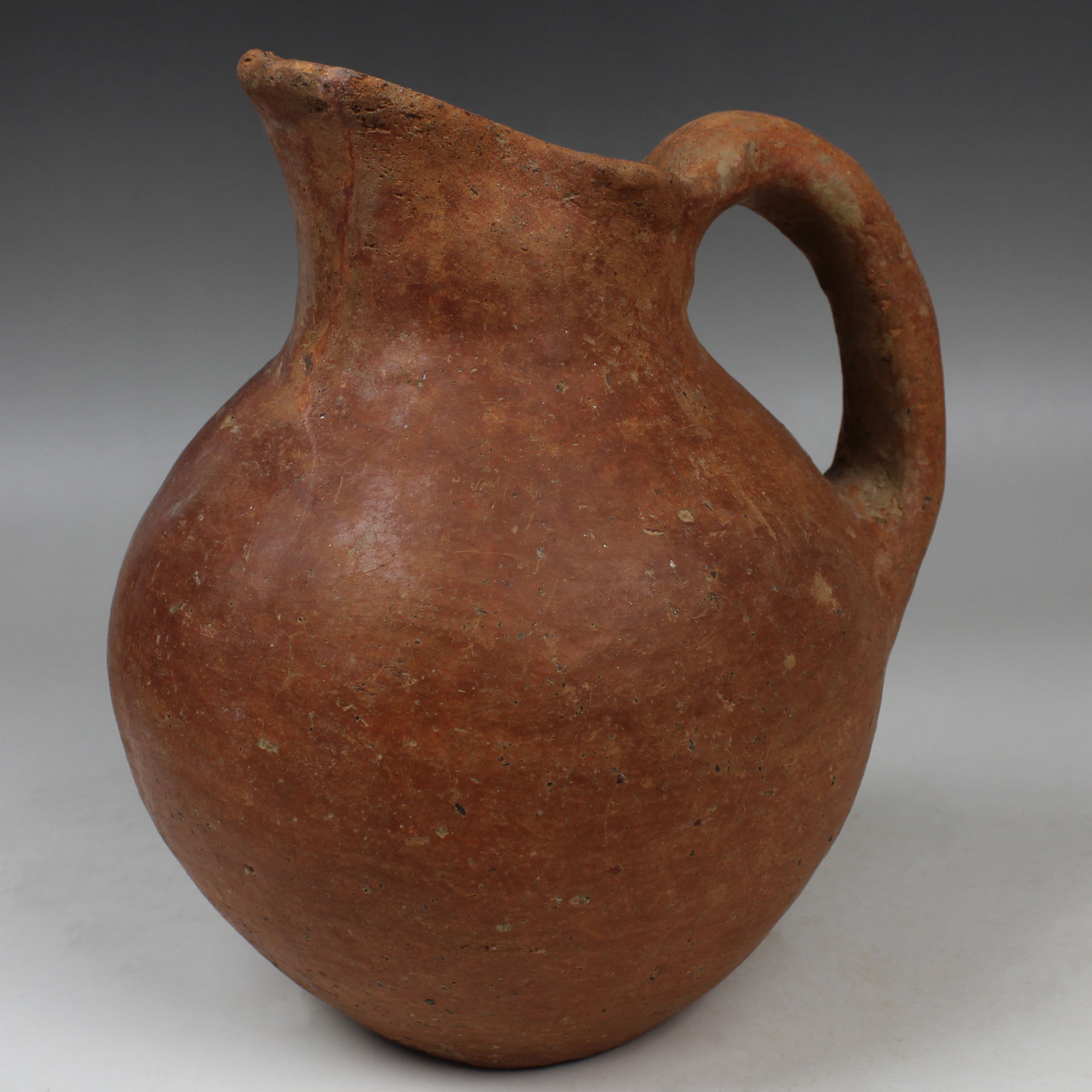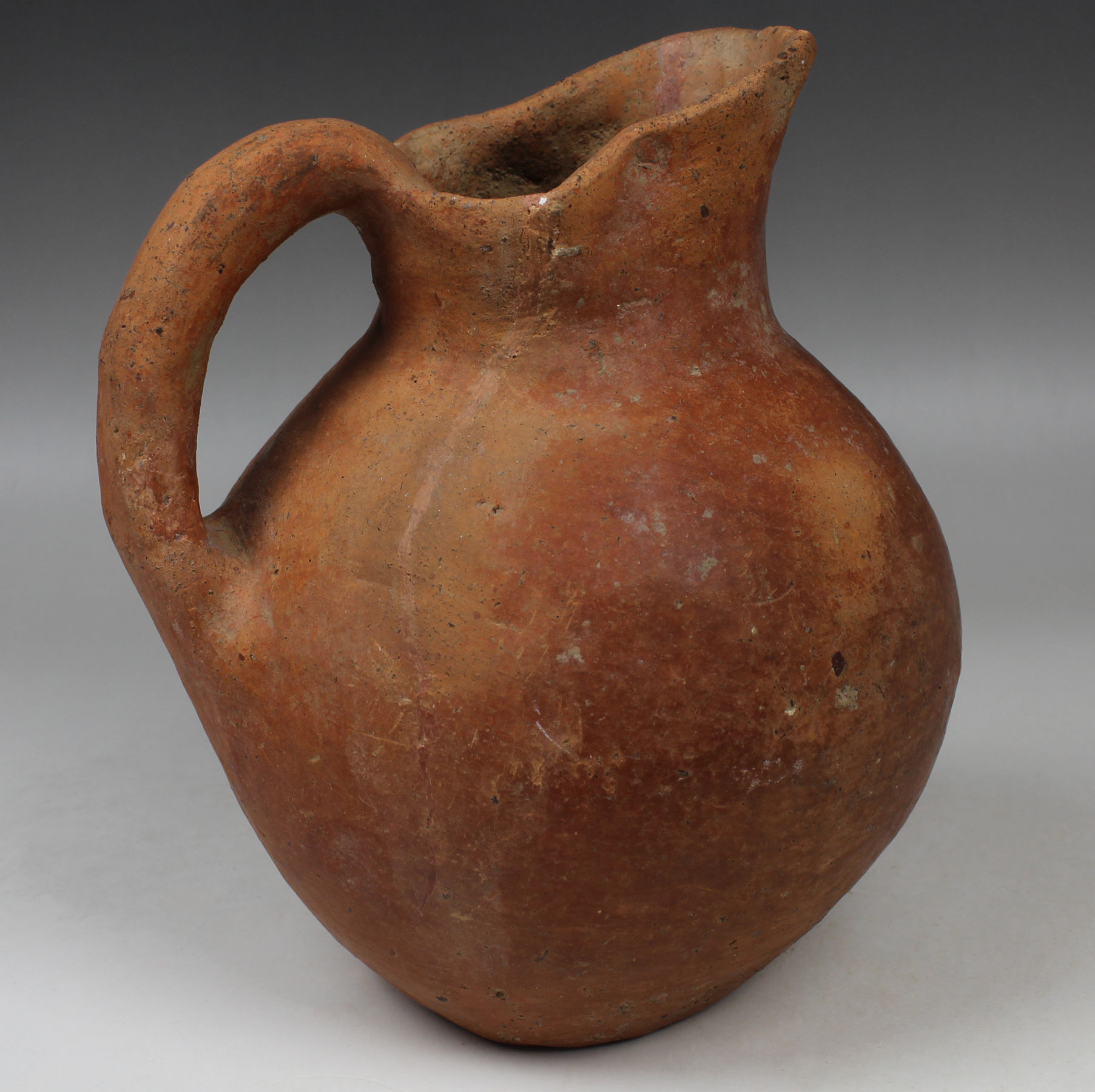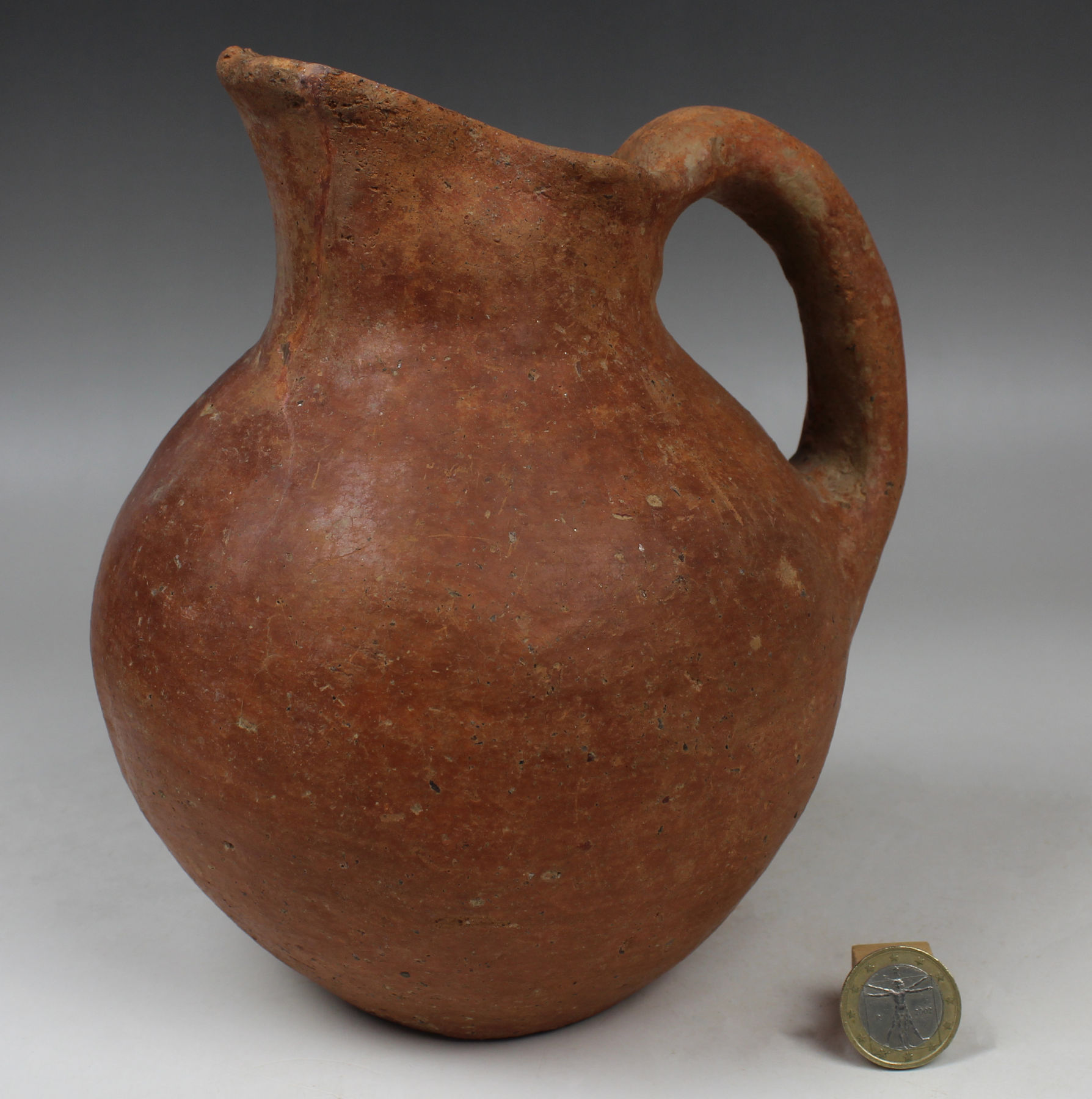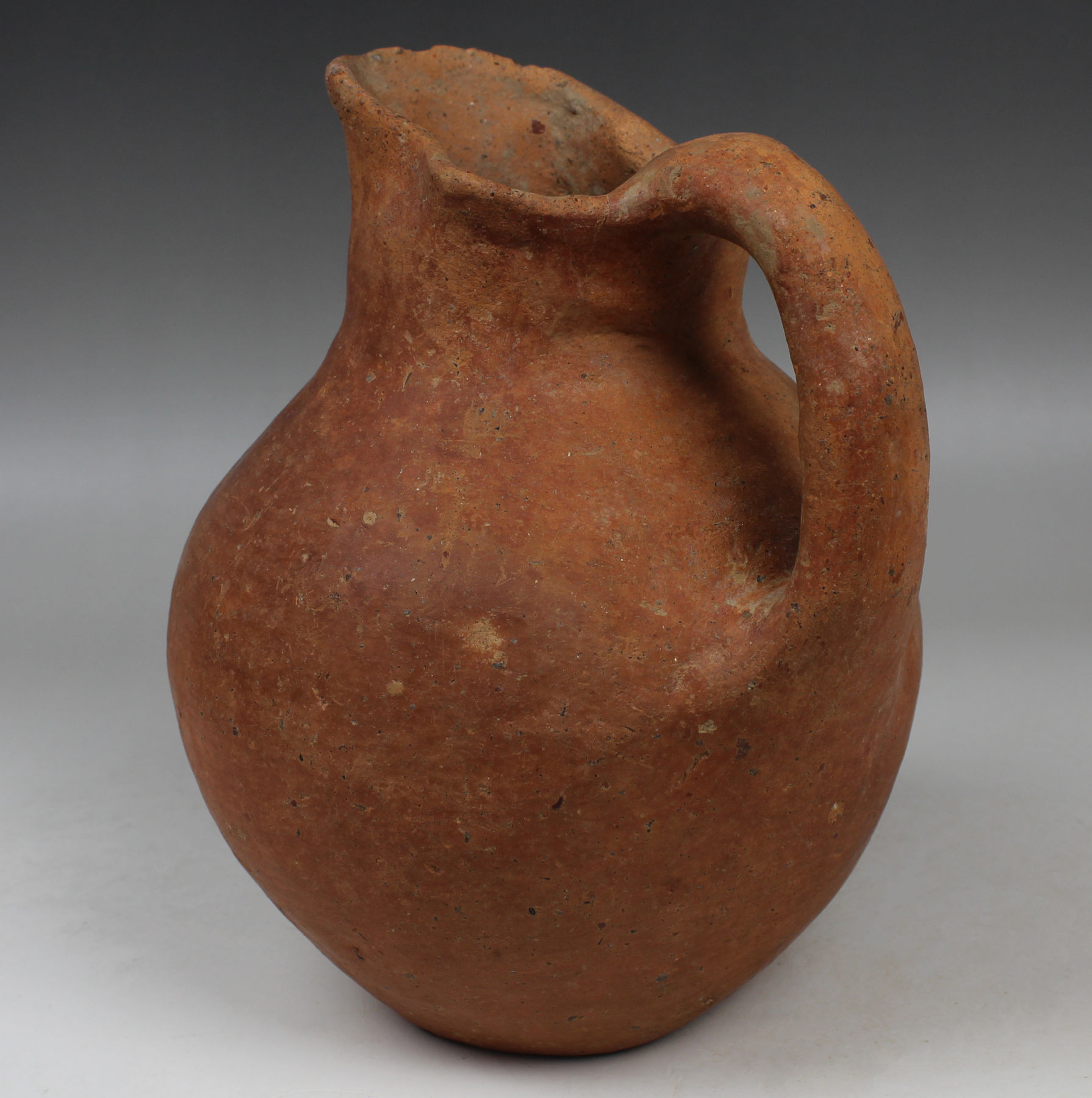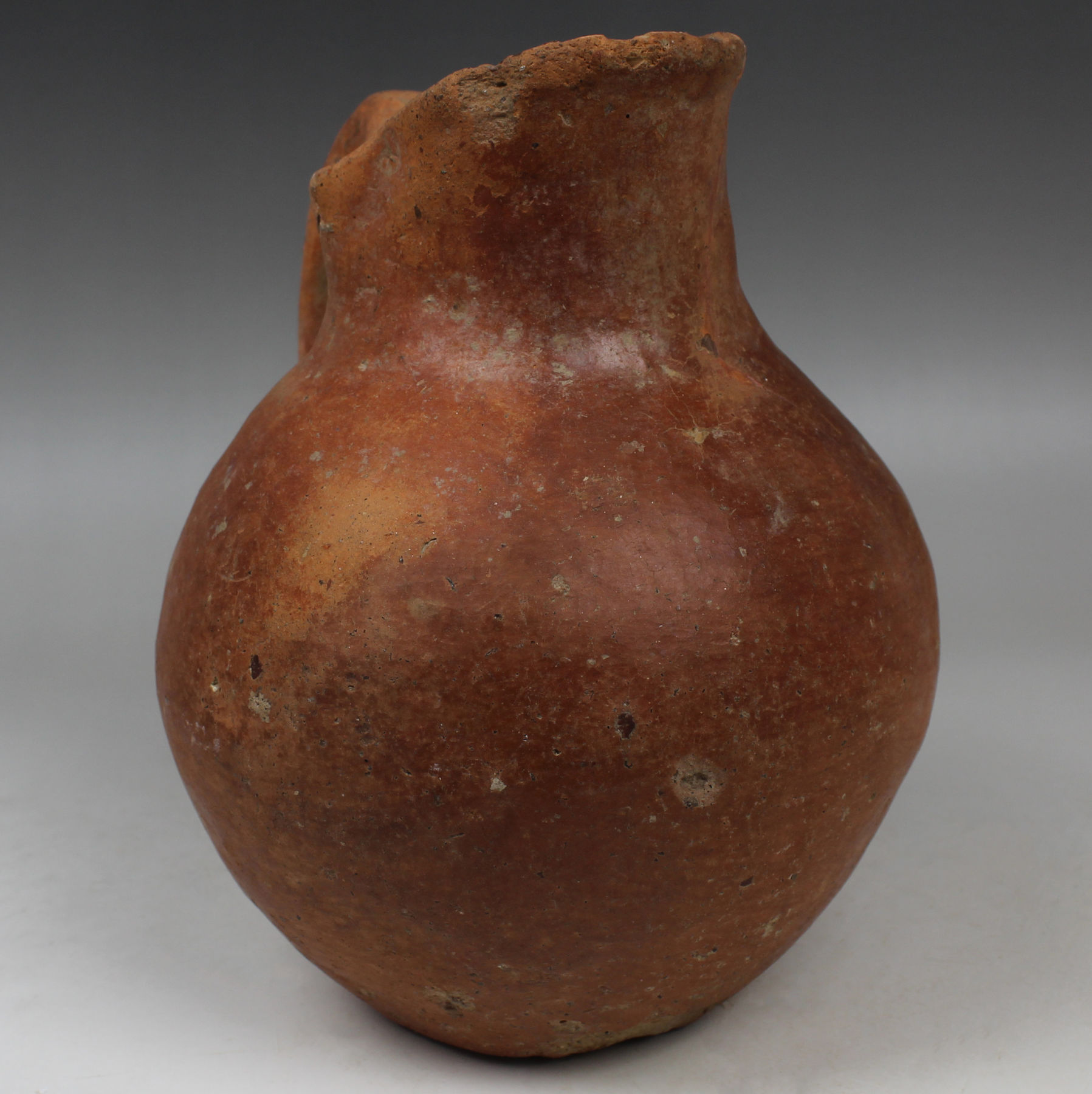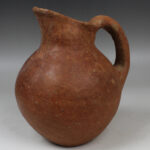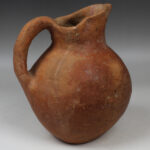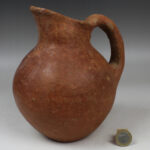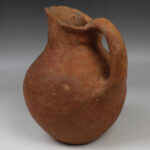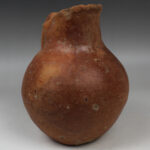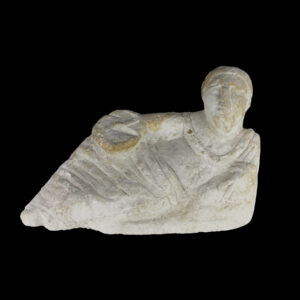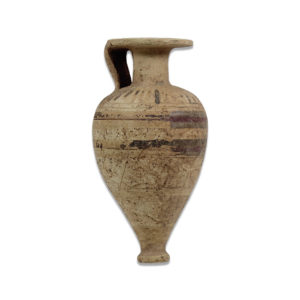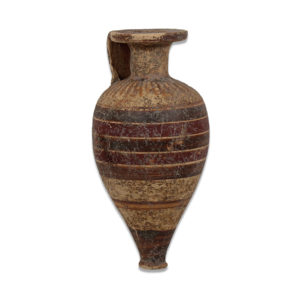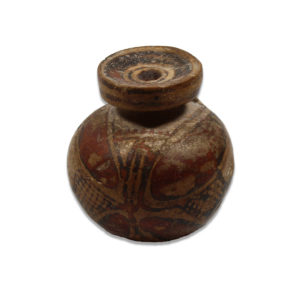Description
| ITEM | Beaked jug |
| MATERIAL | Pottery |
| CULTURE | Etruscan |
| PERIOD | 7th Century B.C |
| DIMENSIONS | 185 mm x 140 mm |
| CONDITION | Good condition |
| PROVENANCE | Ex German private collection, K.F., from and old family estate, acquired before 1980s |
Etruscan pottery from the 7th century B.C. offers a fascinating glimpse into the artistic and cultural developments of the Etruscan civilization in ancient Italy. During this period, Etruscan pottery was characterized by its distinctive shapes, such as the bucchero ware, which was crafted using a unique black ceramic technique. Bucchero pottery was wheel-thrown and then fired in an oxygen-restricted environment to produce its dark, shiny surface. These vessels often featured intricate incised or molded designs, depicting various motifs, including human and animal figures, mythical creatures, and geometric patterns. The 7th century B.C. also marked the transition from Orientalizing influences, which were prevalent in earlier Etruscan pottery, to a more indigenous Etruscan style, with an emphasis on the depiction of daily life, rituals, and religious themes.
Etruscan pottery from this period was not only utilitarian but also served a symbolic and artistic purpose. It reflected the Etruscans’ engagement with neighboring civilizations, such as the Greeks and the Phoenicians, while also preserving their unique cultural identity. The pottery was used for a variety of functions, including storage, serving, and religious offerings


